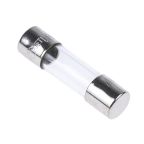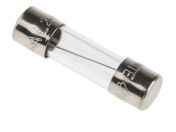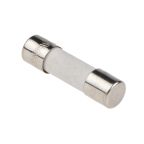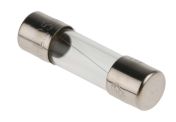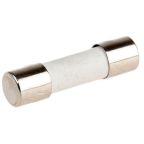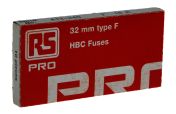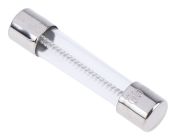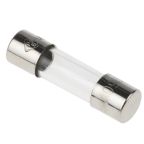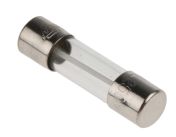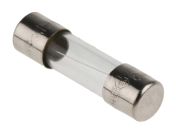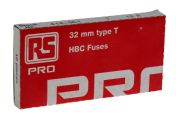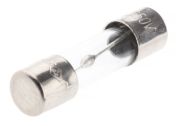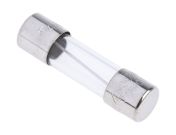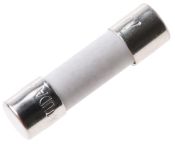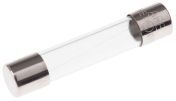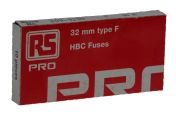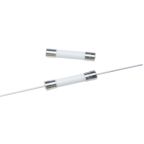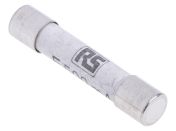Cartridge Fuses
Cartridge fuses are electrical safety devices designed to protect circuits and appliances from damage caused by overcurrent or short circuits. They are made from a range of materials, though ceramic fuses, porcelain, and glass fusesare most common. Fuses contain a wire element that melts when exposed to excessive current, this breaks the circuit and prevents damage, making cartridge fuses a reliable, low-cost solution for electrical protection.
Cartridge fuses are considered very safe, as they interrupt power without producing flames, arcs, or gas. They are available in a range of standard amperages and must be replaced once blown. Some types, such as slow blow fuses, are designed to tolerate brief power surges without triggering, making them ideal for devices with inrush currents. When selecting a fuse, it’s important to choose one with a slightly higher current rating than the device it’s protecting to avoid unnecessary blowouts from harmless current fluctuations.
RS offers a comprehensive range of cartridge fuses from leading brands including Eaton, Littelfuse, Mersen, and RS PRO. Many of these products are part of our Better World range, helping you make more sustainable choices without compromising on performance. With Next Day Delivery available, you can get the components you need—fast.
How do cartridge fuses work?
Cartridge fuses contain a piece of wire that melts when too much current flows through the circuit. When the wire melts, it breaks the circuit which prevents any damage. This is often referred to as burning out or blowing out. Put simply, when a fuse blows, the circuit is broken. Once a fuse has blown, it will need replacing to make the circuit complete again and allow the flow of current.
Fuse Markings & Speed Codes
Cylindrical cartridge fuses are used in a range of industrial, commercial, and domestic applications. Selecting the correct fuse speed is essential for the protection of your device. Here are some of the most common markings you will find on a cartridge fuse. (We’ve included the German terminology because ‘Flink,’ ‘Mitteltrage,’ and ‘Trage’ are historical classifications still recognized in international fuse standards.) For a complete guide to fuses please click on the link 'Guide to fuses'
- FF = Very Fast Acting (Flink Flink)
- F = Fast Acting (Flink)
- M = Medium Acting (Mitteltrage)
- T = Slow Acting (Trage)
- TT = Very Slow Acting (Trage Trage)
Popular Searches
Related links
- RS PRO 500mA F Glass Cartridge Fuse, 5 x 20mm
- RS PRO 5A T Glass Cartridge Fuse, 5 x 20mm
- RS PRO 1A F Glass Cartridge Fuse, 5 x 20mm
- Mersen 6.3A F Glass Cartridge Fuse, 6.3 x 32mm
- RS PRO 15A T Glass Cartridge Fuse, 5 x 20mm
- Eaton 100mA F Glass Cartridge Fuse, 5 x 20mm
- Eaton 150mA T Glass Cartridge Fuse, 6.3 x 32mm
- RS PRO 6.3A F Glass Cartridge Fuse, 5 x 20mm
